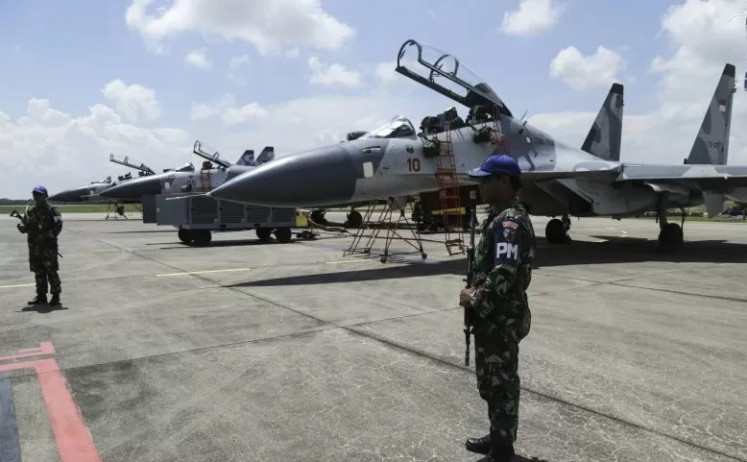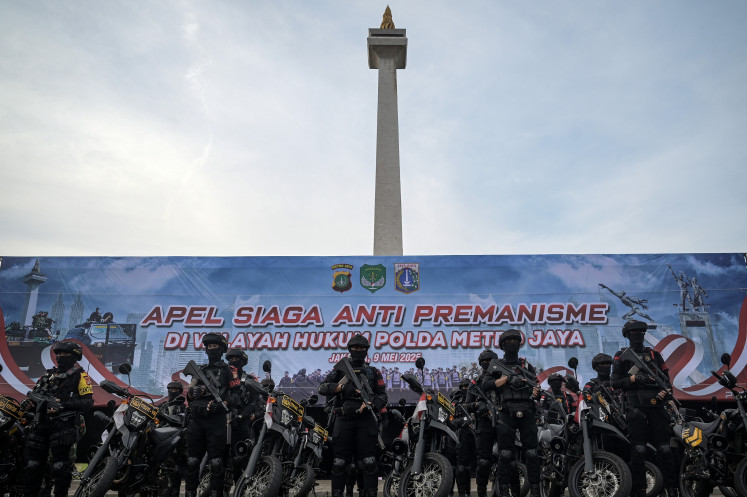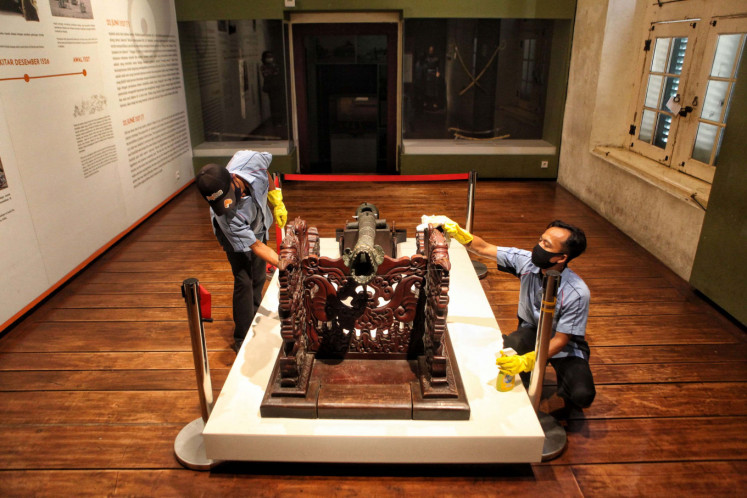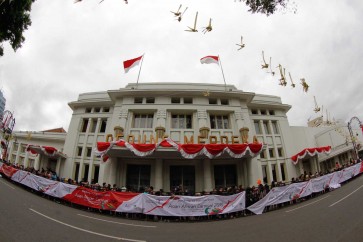The Bandung message and the building of a principled world order
The international order has been replete with incidents of aggression and the use of military force, in proxy or head-to-head confrontations.
Change text size
Gift Premium Articles
to Anyone
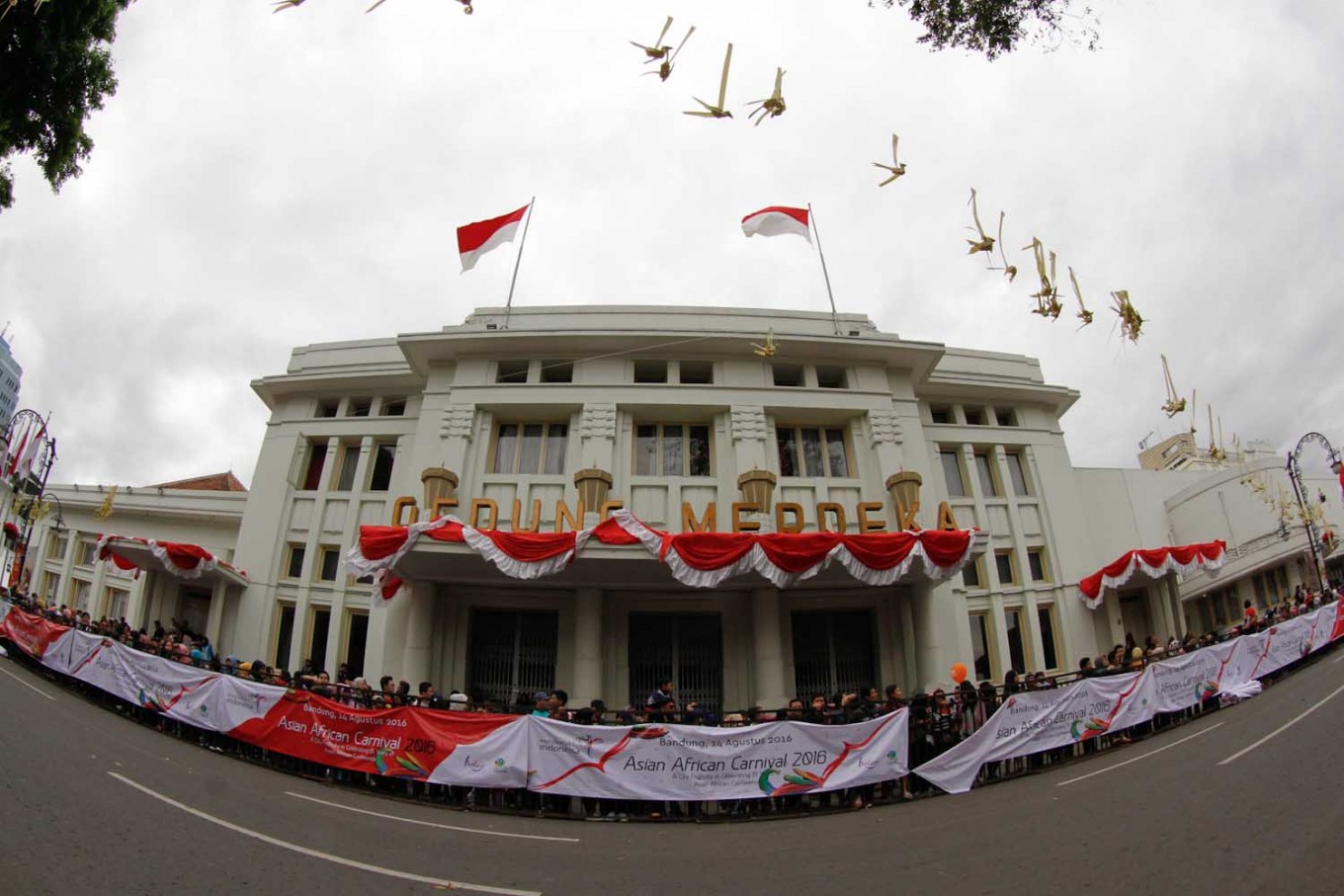 People wait in front of the Merdeka Building for Asia-Africa carnival participants to pass by in their colorful costumes in Bandung on Aug. 14, 2016. The building was the venue of the Asia-Africa Conference in 1955. JP/Arya Dipa (The Jakarta Post/Arya Dipa)
People wait in front of the Merdeka Building for Asia-Africa carnival participants to pass by in their colorful costumes in Bandung on Aug. 14, 2016. The building was the venue of the Asia-Africa Conference in 1955. JP/Arya Dipa (The Jakarta Post/Arya Dipa)
O
n April 18, 1955, 67 years ago, Indonesia hosted the historic Asia-Africa Conference in Bandung. The conference was a resolute response from Asian and African nations – many newly born – to the growing bipolar Cold War world.
It defined a different way of perceiving and constructing international relations, which was at that time marked by the confrontation between the Eastern and Western blocs. In the words of then-foreign minister Roeslan Abdulgani, the Bandung conference set the middle way and the free way of the nations of Asia-Africa between the extreme ways of the antagonists of the Cold War.
One landmark outcome of the conference was the Dasasila Bandung – a set of 10 principles, dearly held as the normative basis for the countries participating in the conference in navigating relations among states in a world that was increasingly bipolar. For years in the Cold War era, the principles were of great help to the countries in crafting their diplomacy and foreign relations strategies that reflected the spirit of the middle and free way.
The Dasasila Bandung, I would argue, is as relevant today as it was in the time of the Cold War. Our world now is entering a phase where the need for reassuring norms and principles in international relations is dire. The wars in Ukraine, Syria and Yemen present a strong reminder that the current world order needs to be recalibrated.
There are at least six reasons why the Dasasila Bandung is of utmost importance to reconstructing the existing world order into one where norms and principles are the driving force for its cohesion, as well as full acceptance and observance by its actors.
First, peace over war, talks over disengagement. A viable world order needs its actors to always resort to peaceful methods when disputes arise. A peace-first policy and strategies require a relentless commitment to a variety of diplomatic formats. This is where principle 8 of the Dasasila Bandung is pertinent: all international disputes are settled by peaceful means, such as negotiation, conciliation, arbitration or judicial settlement as well as other peaceful means of the parties' own choice, in conformity with the United Nations Charter.
Second, central to the reconstruction of the world order is reaffirmation and reassurances by nation-states as primary actors within the global order to principle 2 of the Dasasila Bandung: respect for the sovereignty and territorial integrity of all nations. Sovereignty and territorial integrity are sacrosanct elements that define the very existence of a state.







